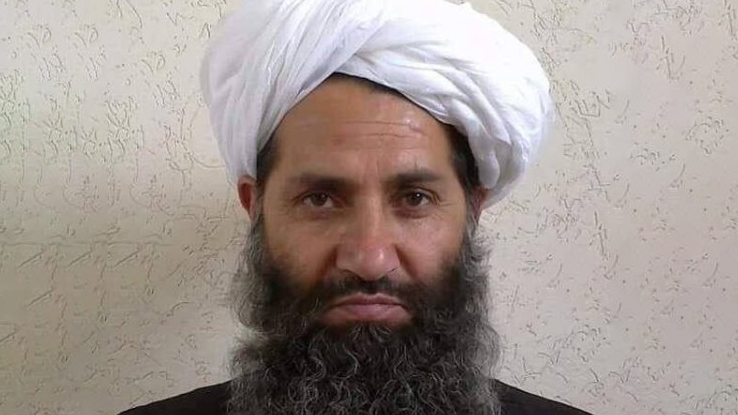KANDAHAR, Afghanistan — Taliban leader Hibatullah Akhundzada in an audio recording from his Eid speech in Kandahar on Monday expressed deep concern over internal divisions within the Taliban ranks, saying he would be pleased to step down if everyone unites and wants so. However, he lamented the current state of discord among Taliban members.
Repeatedly addressing the issue of internal rift, Akhundzada emphasized that divisions are not welcome within or outside the Taliban’s ranks.
“This is a divine system,” he declared, urging members to strengthen their unity.
“Brothers, put aside your differences. This Islamic system is based on God’s commandments and will continue with His help. I am not happy to see divisions among Muslims, whether within or outside our system. I would rather see unity, even if it means I am removed from my position,” he said.
Akhundzada also called for an end to public criticism among Taliban members.
“Do not reveal each other’s faults openly,” he urged. “Why do you speak ill of one another? He is your Muslim brother. View him as such. It is unjust to backbite and disclose his faults. If you wish to advise him, do so kindly and privately.”
Despite his numerous edicts restricting the rights of women and girls, Akhundzada addressed the issue of women’s inheritance rights during his speech.
He reiterated his command to ensure women receive their rightful inheritance.
“One of the greatest acts of kinship is to fulfill women’s rights in your family. I have repeatedly stated this and issued orders. Promise before God in this mosque that you will give women their rightful inheritance.”
Akhundzada also invited constructive criticism.
“Scholars (Taliban members) and responsible individuals are your brothers. They have taken on a responsibility. Help them fulfill it well. Do not oppose or create rift with them. Advise me as well.”
While refraining from directly addressing the ongoing conflict between Israel and Hamas, Akhundzada criticized global powers.
“Given the current world situation, how do you expect us to accept your demands? You witness the continued oppression of Muslims in the name of human rights and Islam. With what justification do you expect us to heed your requests?”
Akhundzada has yet to appear in public. In the past three years, he has issued dozens of decrees limiting the rights of women and girls, barring them from attending schools and universities and prohibiting them from working in aid organizations.
His call to curb public criticism of Taliban officials comes amidst the group’s strict restrictions on media and freedom of expression and the banning of political parties in the country.





